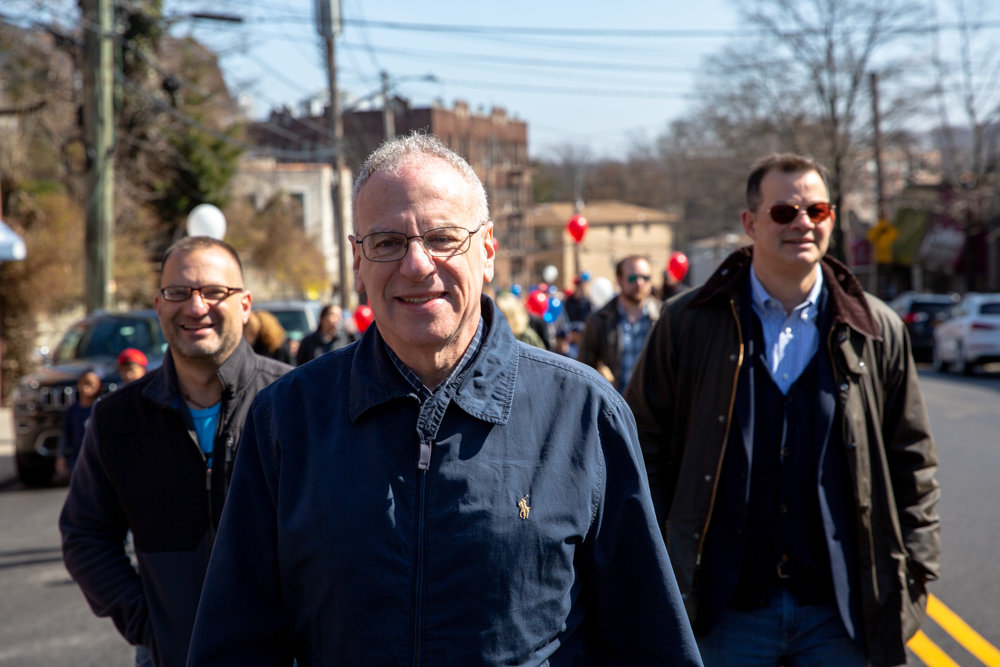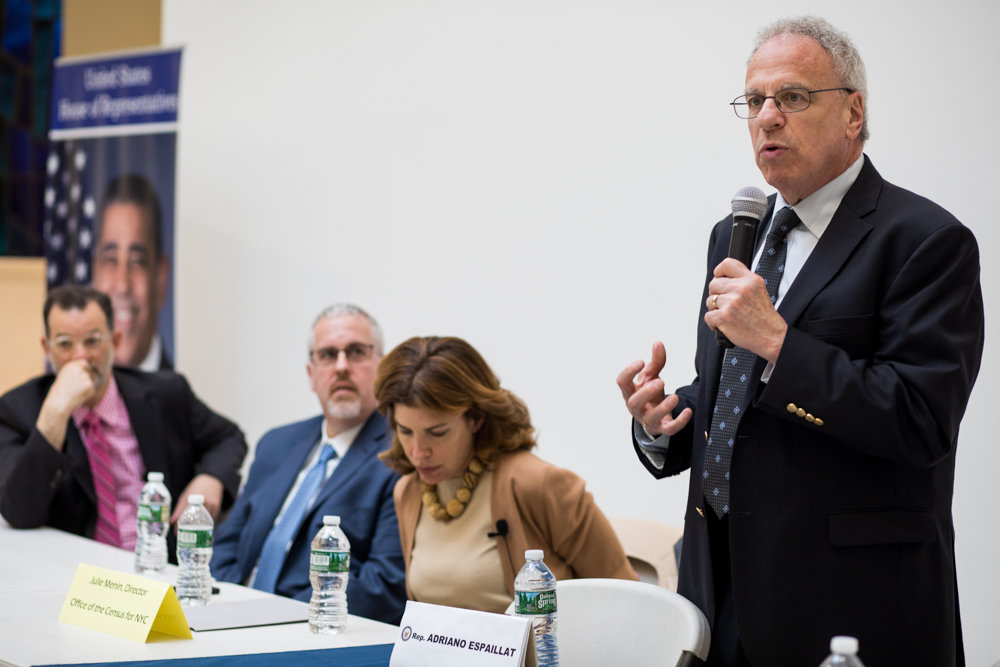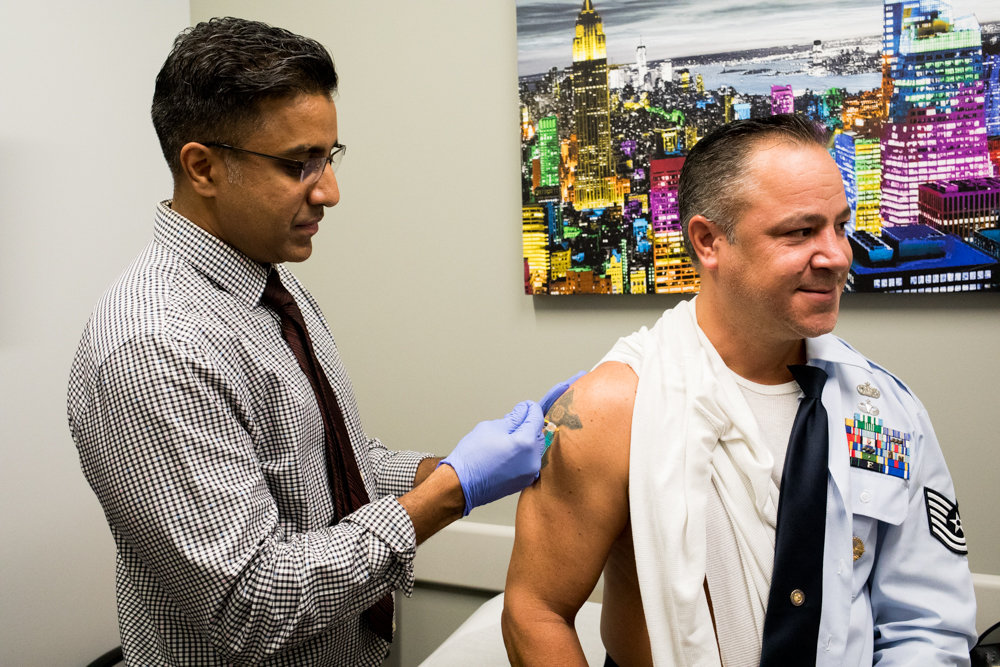Dinowitz defiant in face of anti-vaccination lawsuit
A group of anti-vaccination parents, led by Robert F. Kennedy Jr., was denied a temporary restraining order to block enforcement of a new law eliminating religious exemptions for vaccines.
The group filed a lawsuit in the state supreme court claiming the law passed last month violates their constitutional right to religious freedom. Under the old law, parents could opt their children out of mandatory vaccines if they held “genuine and sincere religious beliefs.”
One of the primary groups said to be taking advantage of the religious exemption were some Orthodox Jewish communities. Earlier this year, the largest measles outbreak in decades hit Brooklyn and Queens, with more than 400 cases reported — many of them concentrated in Orthodox Jewish communities. City officials believe the outbreak began with an infected child who returned from a trip to Israel, where reported cases of the disease have skyrocketed in recent years.
Measles was declared eradicated in the United States in 2000, but the potentially deadly disease has since made a comeback, especially with the push by some to curtail vaccines. Between January and May, the Centers for Disease Control and Prevention reported more than 750 cases in 23 states — the highest since eradication.
Last April, the city’s health department ordered that every person living or working in Brooklyn’s Williamsburg neighborhood be vaccinated against measles, mumps and rubella. Those who refused were fined.
Several religious schools — including Salanter Akiba Riverdale Academy and SAR High School — refused to allow any unvaccinated students without valid medical exemptions to attend class until they were vaccinated.
In response to the outbreak, Assemblyman Jeffrey Dinowitz introduced his bill eliminating religious exemptions. He and other legislators believe the exemption was a loophole used by groups who believe vaccines cause autism — a belief that originated from a debunked paper written by a British physician.
Previous attempts to pass legislation eliminating the exemption were rebuffed by Gov. Andrew Cuomo who was concerned over religious protection opposition. But the outbreaks spurred lawmakers to take quick action.
The anti-vaccination supporters’ suit claims the law is discriminatory and ignores their constitutional rights of religious expression.
“What’s at stake here in New York is of profound importance to (the) entire nation,” the group’s attorney, Michael Sussman, recently told reporters. “Without religious liberty — which is a bedrock principle of our country — we flounder, founder, and we violate critical rights of thousands and thousands of people in this state.”
The government used the measles outbreak to rush a bill through the state legislature that discriminates on the grounds of religion, Kennedy said.
But Dinowitz says the law has nothing to do with religion, but everything to do with public health and safety.
“No one has a religious right to put other kids in harm’s way, and those that support keeping the so-called religious exemption apparently believe that it’s OK to potentially expose other people to potentially deadly diseases,” he told The Riverdale Press. “We don’t happen to believe that.”
Laws similar to the one passed in New York have held up when challenged in court, he said. California ended all religious exemptions in 2015, and the state’s appeals court upheld the law when challenged in court last year.
The U.S. Supreme Court also has upheld its 1905 ruling, giving the government authority to mandate vaccines to protect the public from several diseases.
Although a majority of the medical community asserts vaccines are safe, a vocal group of people believes vaccines are dangerous for various reasons, many of which are not based on legitimate scientific research, according to the CDC.
“Paranoia should not be the way that we determine important health policy,” Dinowitz said. “It should be based on fact. Period.”
The only exemption to vaccines should be medical, Dinowitz said. Widespread vaccination against a disease impedes its spread, according to the U.S. Department of Health and Human Services.
Vaccines have “saved millions of lives” and are vital to protecting the population from diseases that killed thousands annually before vaccines were widely available.
“I would just strongly urge people to get their medical advice from physicians, people in the scientific community,” Dinowitz said, “and not sit in their living room looking at YouTube videos of people who have nothing to do with science.”











